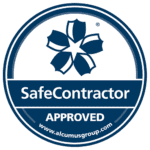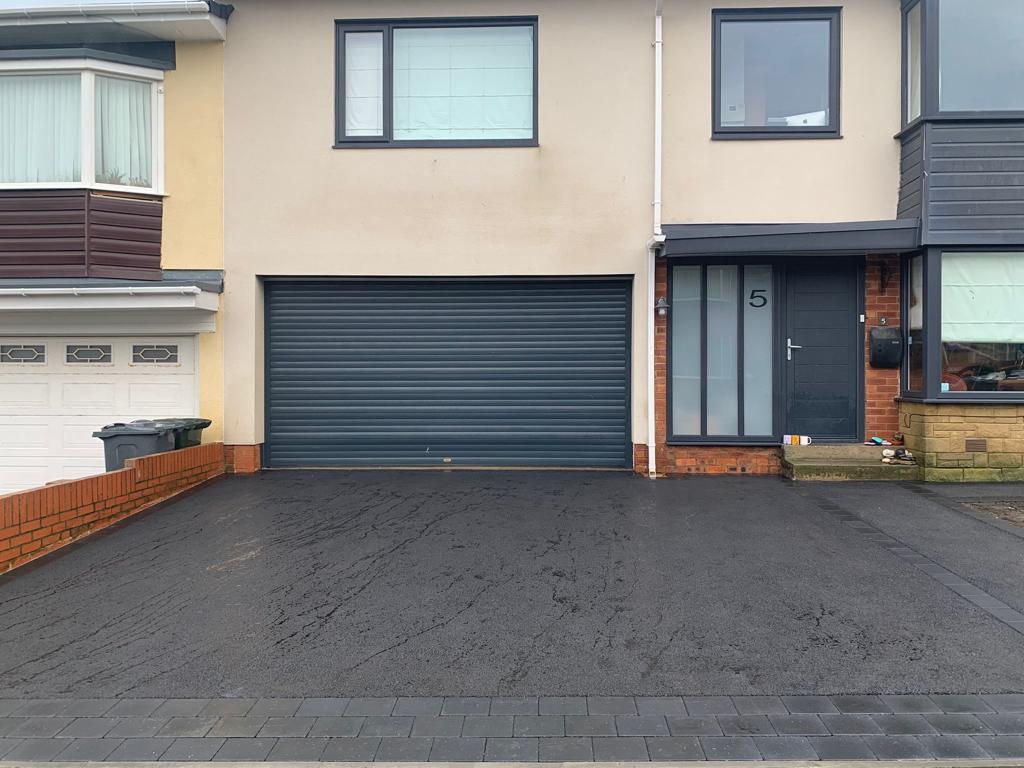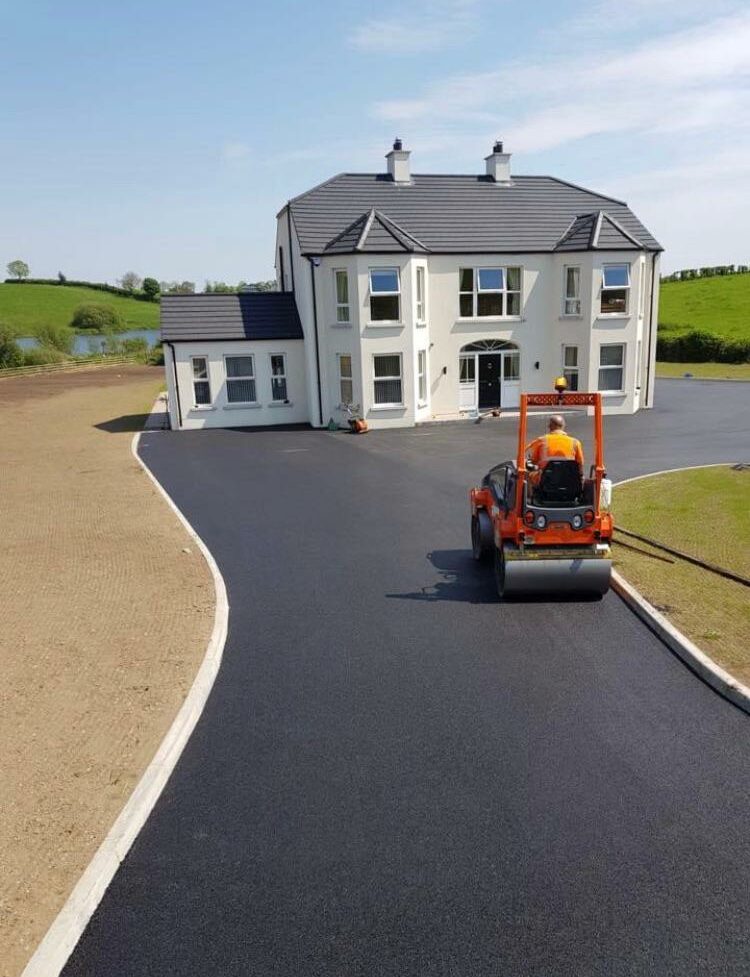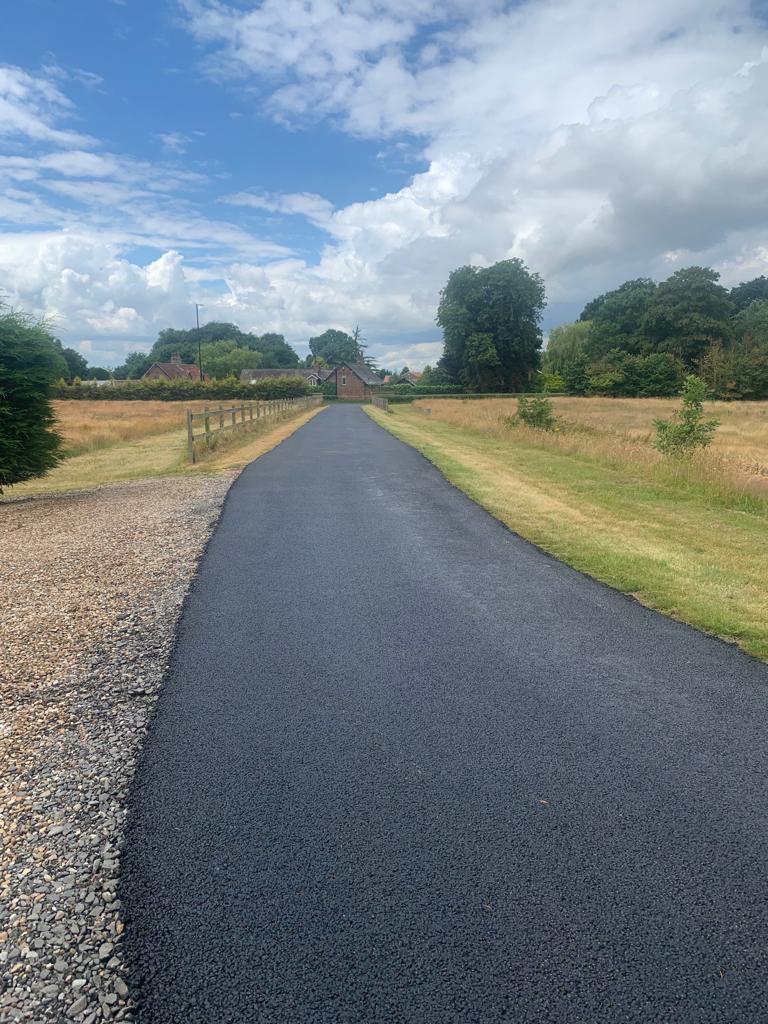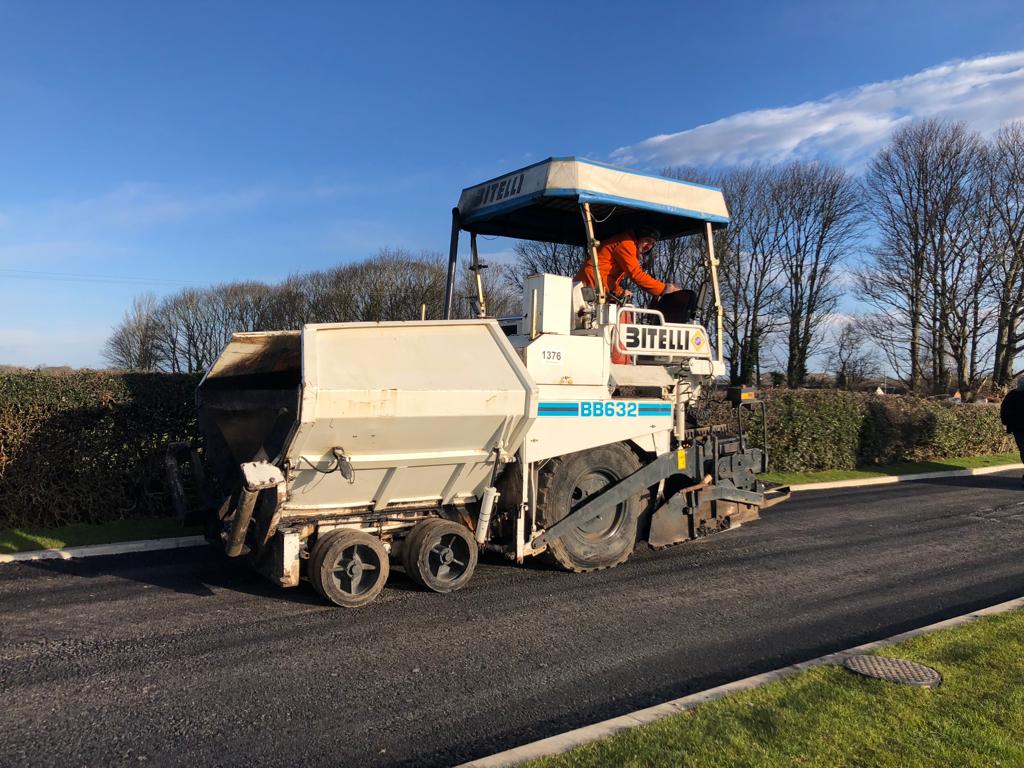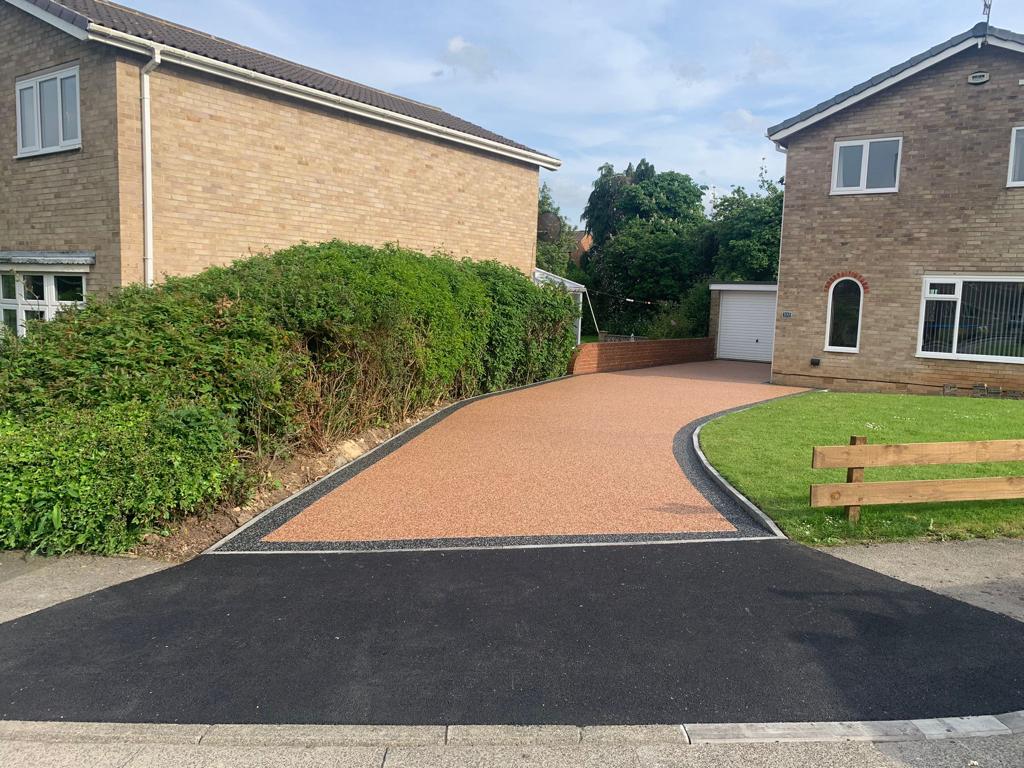When it comes to driveway surfaces, two of the most sought-after materials are tarmac and resin. Despite their popularity, these two options are often confused due to their shared use in creating durable and attractive surfaces. However, each material offers distinct features, benefits, and considerations that set it apart. This guide will explore the differences between tarmac and resin driveways, helping you decide which option is best suited for your home.
What Is Tarmac?
Tarmac, short for tarmacadam, is a material composed of crushed stone mixed with tar to form a solid and durable surface. First introduced in the early 20th century, tarmac has long been a go-to choice for constructing roads and driveways. Its widespread use can be attributed to the following advantages:
- High Durability: Tarmac is renowned for its ability to withstand regular vehicle traffic, making it an excellent option for driveways and roads that experience heavy use.
- Smooth and Even Finish: Its flat and uniform surface provides a seamless driving experience, ensuring comfort and practicality for vehicle owners.
- Versatile Application: Tarmac can be laid over almost any existing surface, including concrete, which enhances its durability and simplifies installation.
- Cost-Effective: Tarmac is relatively affordable compared to many other driveway options, making it an appealing choice for homeowners on a budget.
- Weather Resistance: Designed to withstand British weather conditions, tarmac provides a long-lasting solution with minimal maintenance.
What Is Resin?
Resin driveways, also known as resin-bound surfaces, are created by binding aggregates such as gravel, crushed stone, or marble with a high-quality adhesive resin. Unlike tarmac, resin is not an aggregate itself but acts as a binder that holds various materials together. Resin-bound driveways are highly customizable and offer several key benefits:
- Durable and Long-Lasting: Resin driveways are designed to endure wear and tear from both pedestrian and vehicle traffic, providing a sturdy and reliable surface for years.
- Permeability: Resin-bound surfaces are SUDS (Sustainable Urban Drainage System) compliant, allowing water to drain through the surface and reducing the risk of flooding. This eco-friendly feature makes resin an excellent choice for areas prone to water accumulation.
- Customizable Design: With a vast array of aggregate colors and textures available, resin driveways offer limitless design possibilities. From bold, modern patterns to natural, understated finishes, homeowners can create a driveway that complements their property’s aesthetics.
- Low Maintenance: Resin surfaces require minimal upkeep, with occasional power washing sufficient to maintain their pristine appearance.
- Slip Resistance: Resin driveways provide excellent traction, making them a safer option for households and businesses in wet or icy conditions.
Comparing Tarmac and Resin
Both tarmac and resin are excellent choices, but their unique features make them suitable for different requirements:
Durability and Maintenance
Tarmac excels in durability, especially when laid on a robust base. However, it may require periodic resealing and can develop cracks or potholes over time. Resin driveways, on the other hand, are equally durable and less prone to surface damage. Their low-maintenance nature further enhances their appeal.
Aesthetic Appeal
While tarmac offers a clean and professional look, it lacks the design flexibility of resin. Resin-bound driveways allow for a more personalized finish, with options to incorporate logos, patterns, or even emblems into the surface.
Environmental Impact
Resin driveways are the eco-friendlier option due to their permeability, which helps reduce surface water runoff and supports sustainable drainage. Tarmac, being non-porous, does not offer the same environmental benefits.
Cost Considerations
Tarmac is generally the more affordable option upfront, making it ideal for budget-conscious homeowners. Resin may have a higher initial cost, but its long-term durability and minimal maintenance requirements can lead to cost savings over time.
Installation Process
Tarmac requires a more intensive installation process, including excavation to ensure proper drainage. Resin driveways can often be laid directly onto an existing base, significantly reducing installation time.
Which Is Right for You?
Choosing between tarmac and resin depends on your specific needs and preferences. If affordability and functionality are your priorities, tarmac is a solid choice. For those looking to enhance their property’s curb appeal with a bespoke design, resin-bound surfaces offer unmatched versatility and beauty.
Why Choose Us?
At Driveway Surfacing Plus, we provide high-quality tarmac and resin driveway solutions tailored to your unique requirements. Whether you prioritise the durability of tarmac or the aesthetic appeal of resin, our expert team ensures precision installation and exceptional results.
If you’re ready to transform your driveway with a premium surfacing solution, get in touch with us today. Let us help you create a driveway that combines style, functionality, and longevity to enhance your home’s value and appeal.

